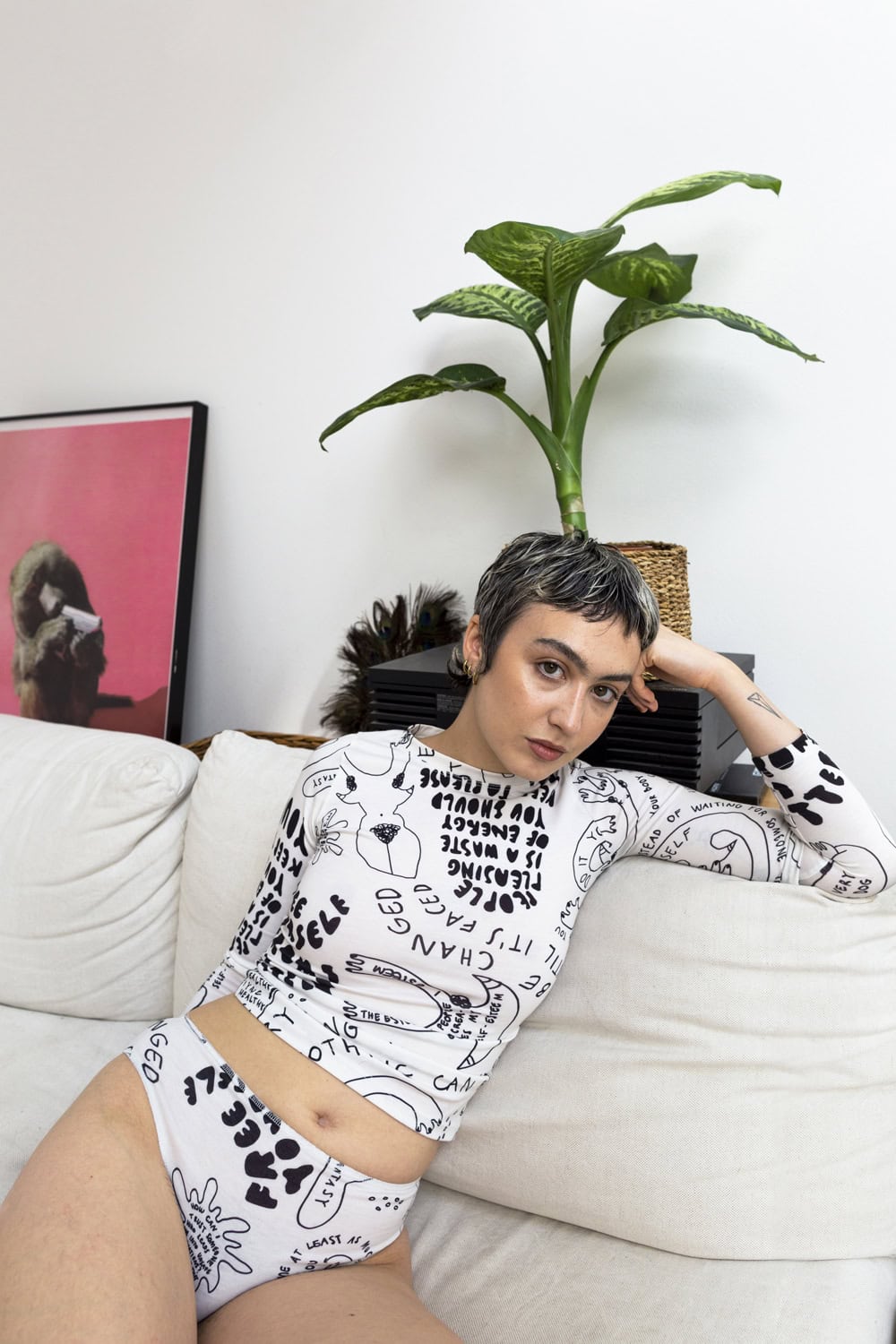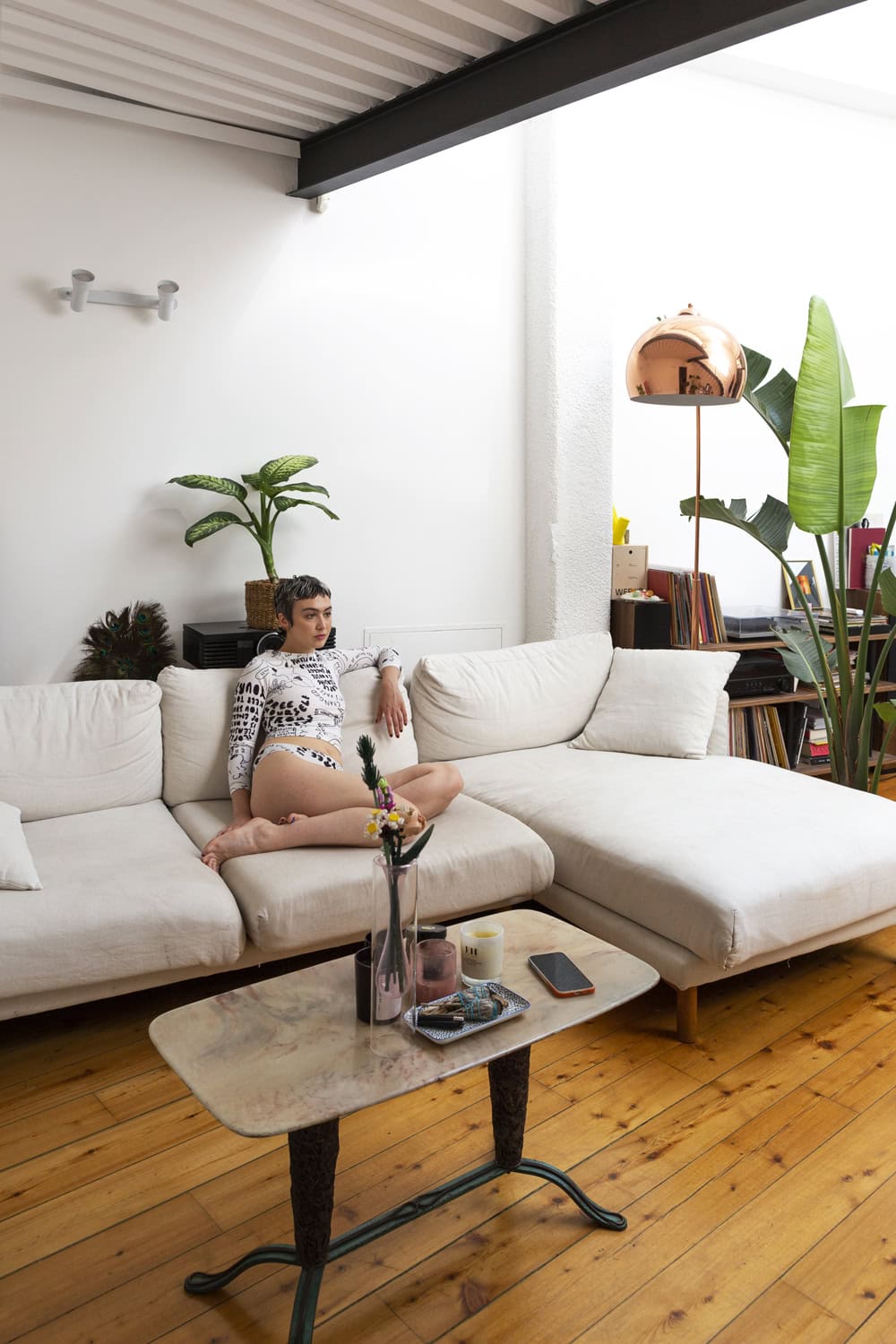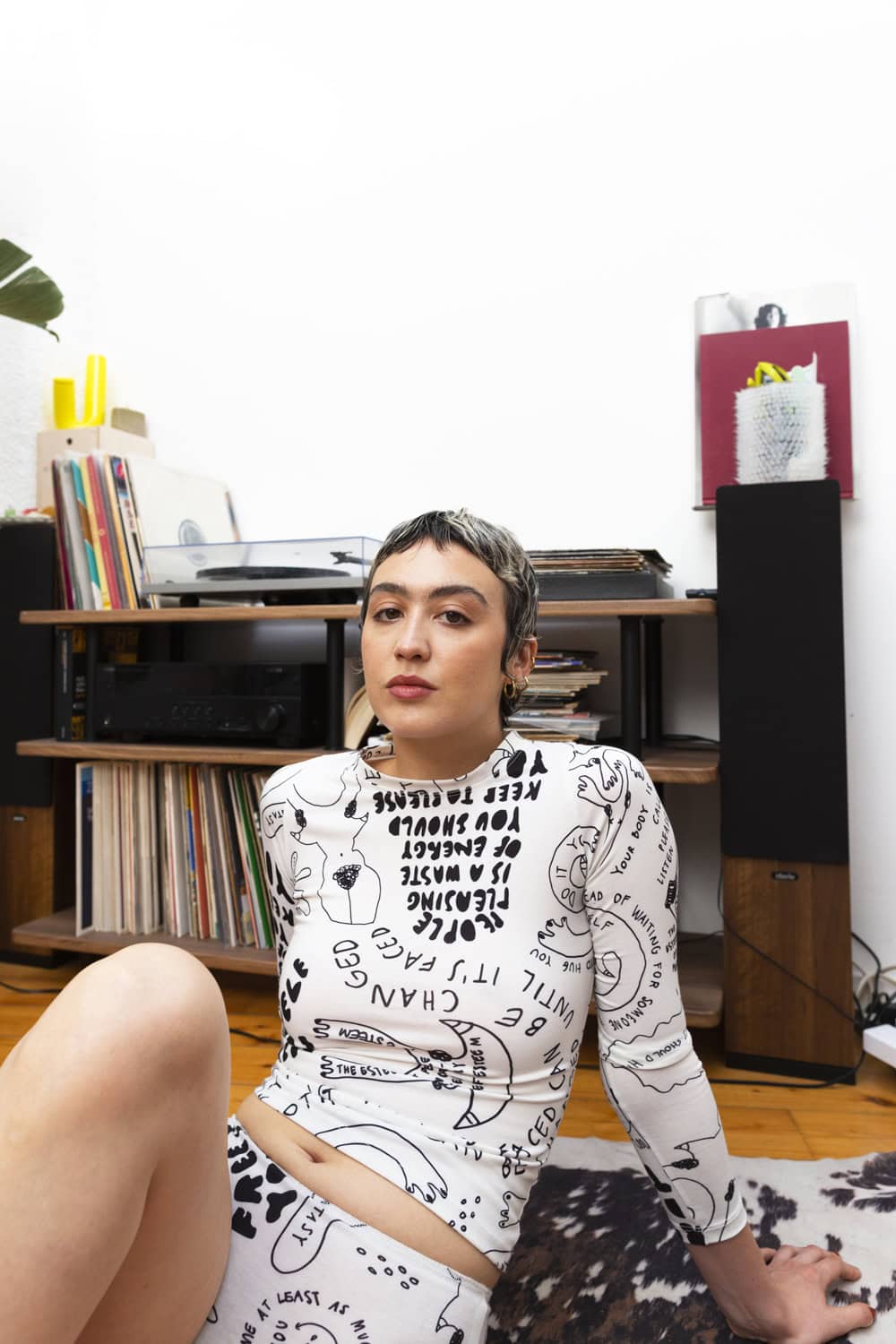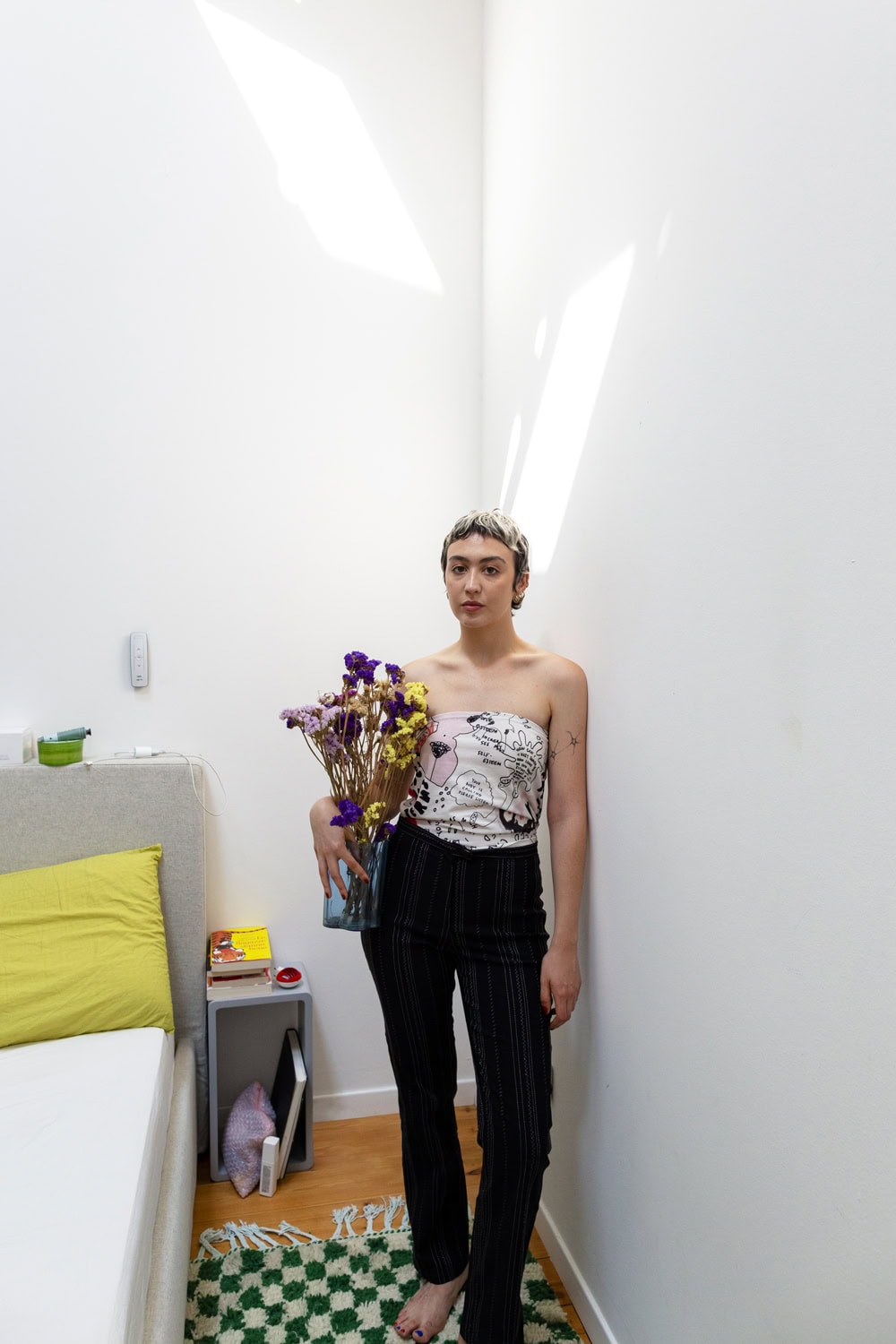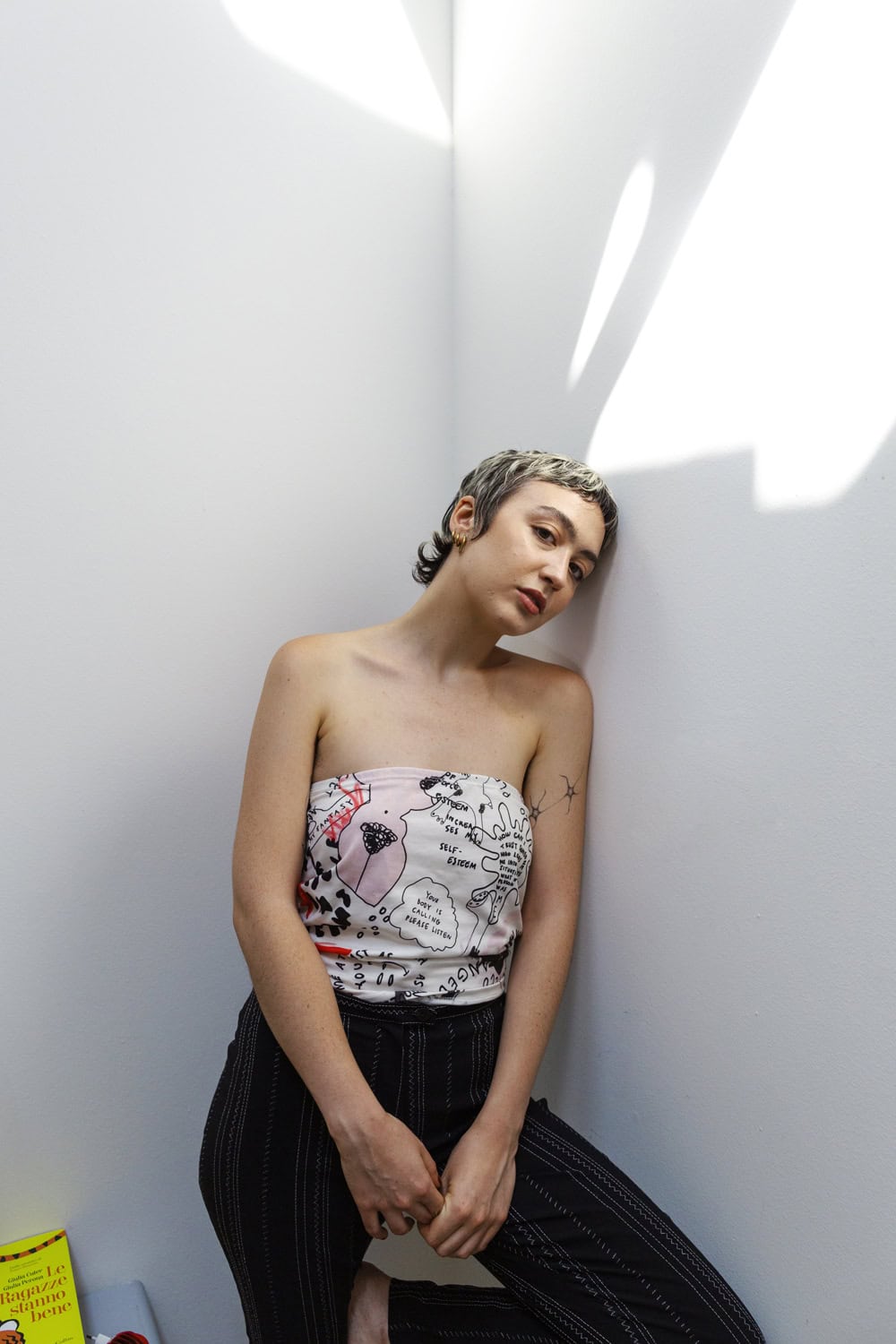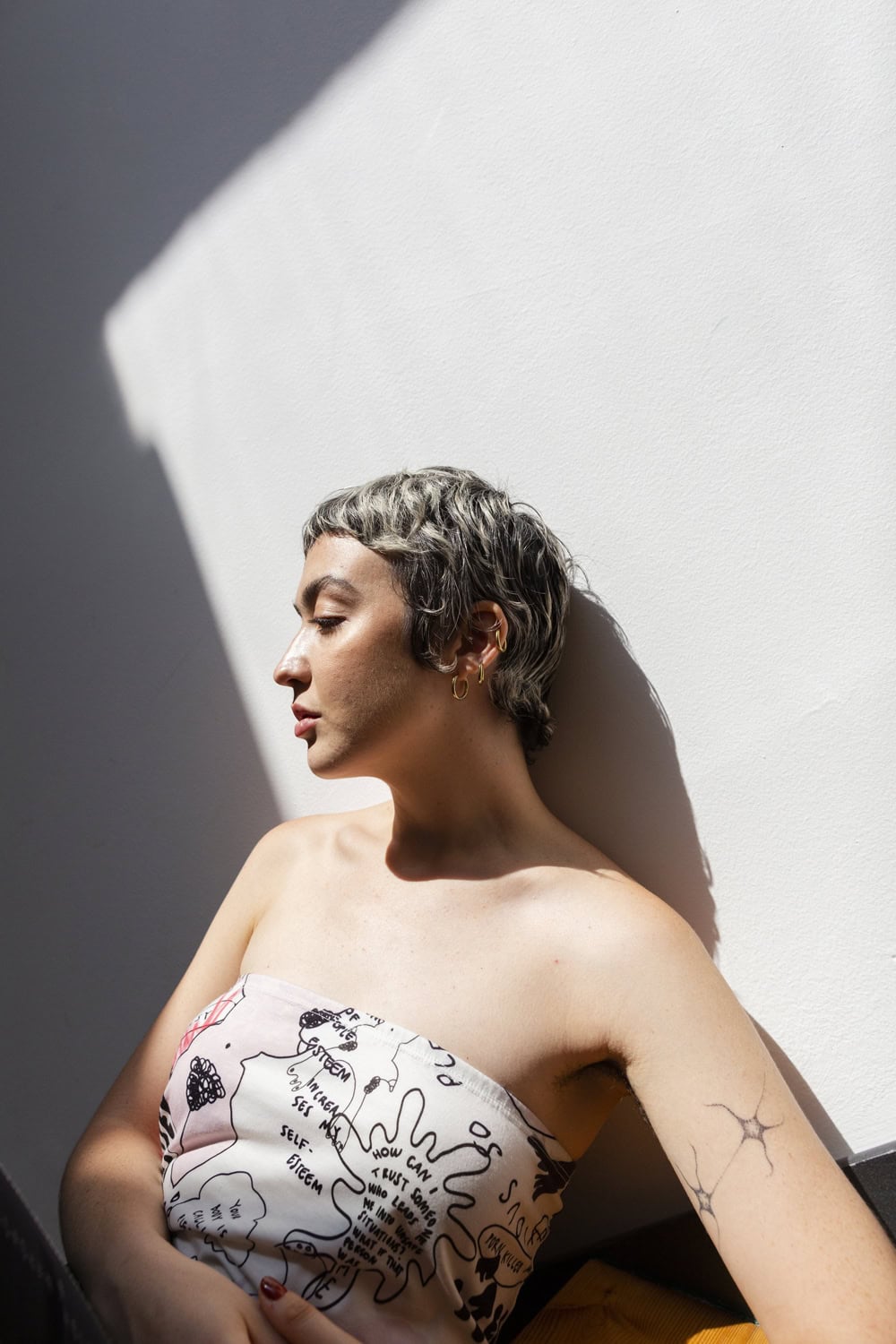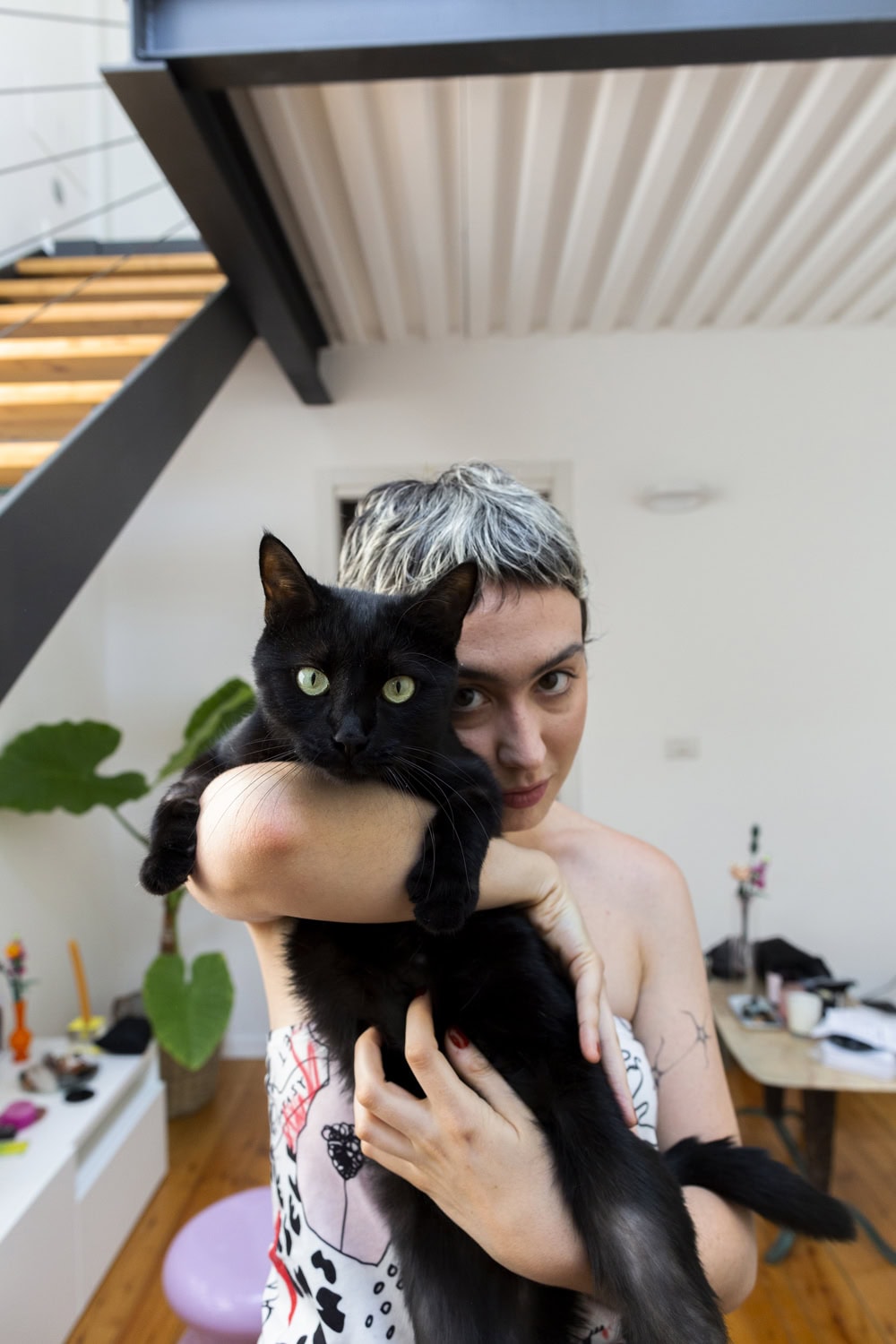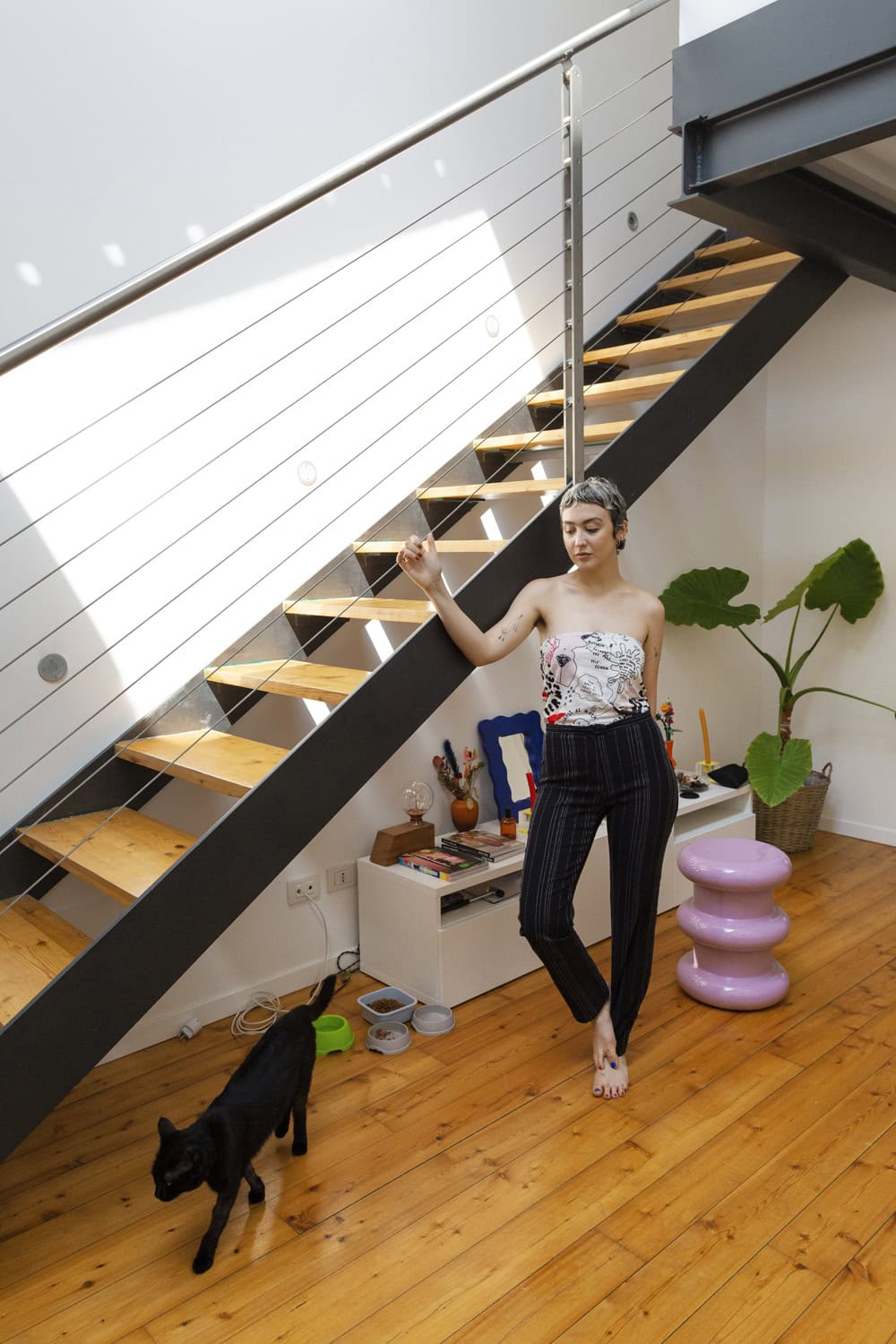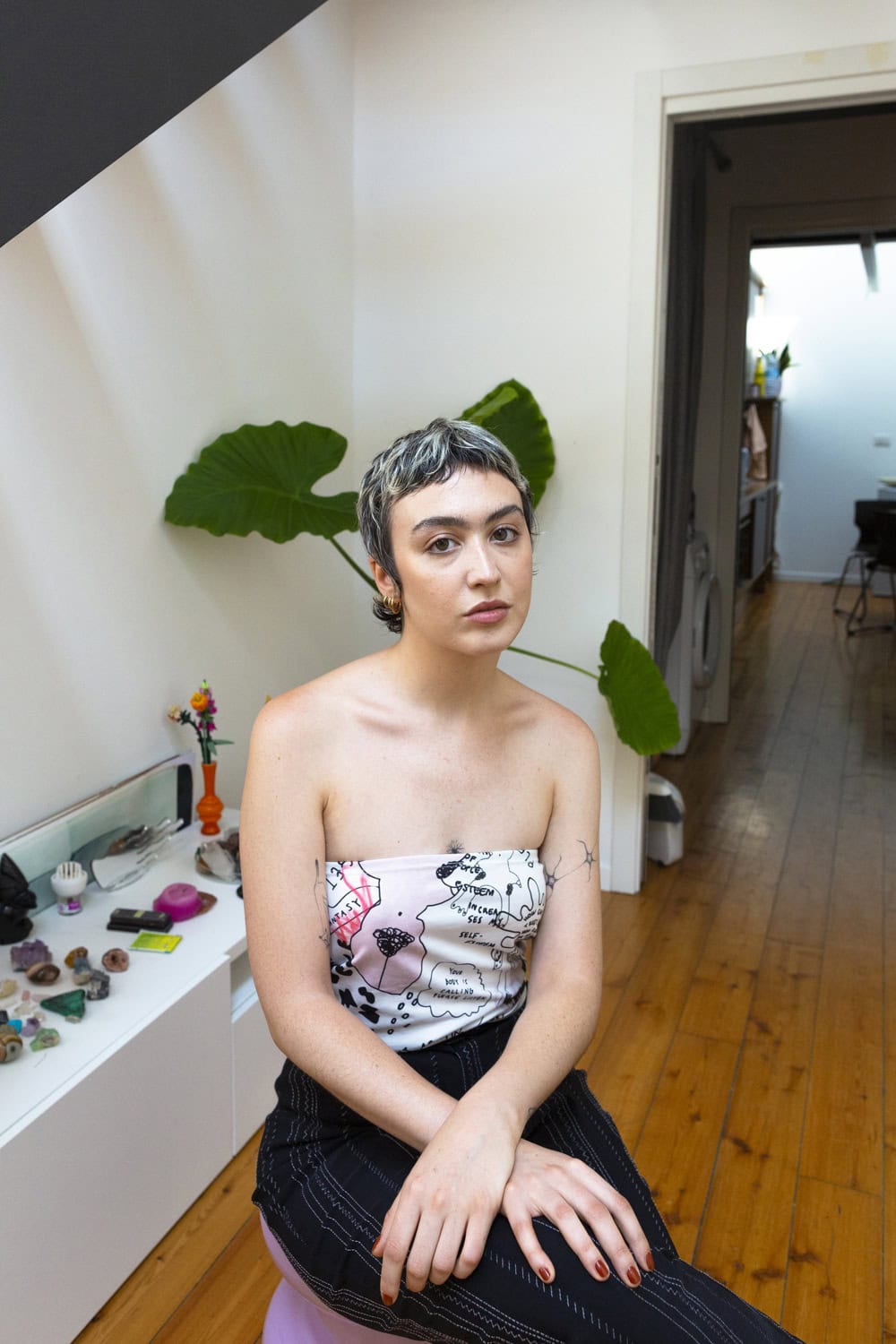Maria Teresa Salvati, personal branding consultant and curator of our “My Spot of Beauty” column, meets Marika Zaramella, beauty creative director and make-up artist, better known as Leitalienne. Together they examine the complexity of the creation of individual and collective consciousness, and the role that art and creativity can have in this process. Starting from what we may recognize as weakness, such as vulnerability, can instead become our most powerful strength. Fearless self-expression can, in fact, turn into the best form of empowerment, moving from the personal and evolving into the collective.
MARIA TERESA SALVATI: Hello Marika! Welcome to this conversation in which we will try to dissect the complexity of modern times through a thread of thought that I would like to share with you. Before you’re going to introduce yourself, I want to make a small preamble: Marika Zaramella, aka Leitalienne, along with Boredomravers and Disegniconsapevoli, creatively explores her inner world and returns it via a clothing line and much more, and soon she will tell us how. I wanted to make a little premise to introduce her work and path.
We live in a society that is predominantly driven and operates mostly with what we can call “masculine energy,” which is relatable to elements such as logic, strength, achievement, goals, competition, discipline, and intellect. An energy that has led capitalist and individualist society to a series of problems at individual, social, cultural, and environmental levels we still experience today. We can also begin to glimpse new elements that have more to do with feminine energy, much needed to balance the predominance of masculine energy that we find in today’s society. The elements of this feminine energy are the more emotional ones: acceptance, vulnerability, creativity, fluidity, connection to the heart, and feeling. So we ask ourselves whether creativity can be an antidote: and push in the opposite and contrary direction to the state of affairs, and how creativity can lead today’s society to balance these two energies and to try to decode, live and create a world that is a little more equitable, juster and more beautiful than the one we are currently experiencing.
When we refer to masculine or feminine energy, we’re making a genderless discourse as we all need both of those energies. A principle we borrow from Eastern philosophy: yin and yang are opposites in complementary terms. No one can be just one or the other, as both contain the seed of their opposite. We are not talking about a positive or negative thing, we’re talking about two energies that are necessary for society, as for the individual, and their need to be balanced. […] That said, I have the pleasure to introduce Marika Zaramella. Marika, give us a little insight into who you are, what you do, and where you live: tell us about yourself and how you put together the myriad of deeply interesting things you do.
MARIKA ZARAMELLA: Thank you! I am Marika, I am 25 years old and I live and work in Milan. I represent a make-up brand called Espressoh, I work as a freelance make-up artist and I also take care of the creative part of the brand. I am very active on social media, and the issues you introduced are very close to my heart as are themes I investigate daily on my profile.
MTS: Since you are very present on social media, could we call you an influencer? Does this prominent outreach make you feel a sense of responsibility? Then tell us more about how Leitalienne account was born, with what goal, and how you use it today.
MZ: Leitalienne was born to showcase my work as a make-up artist, and to portray what I was doing on myself. As a self-taught artist, I was posting these works precisely to present myself to the world. However, I always had—let’s say—an intimate relationship with beauty: I felt that it was a very defined and set environment. Primarily my relationship with make-up has been very strange in the sense that I found it an important means of expression to experiment and to play, but also a limiting means. […] This medium of mine, that we are talking about even today, was born when I started to suffer from acne and to rebel against make-up in general. The same medium that was a source of security and a means of expression for me, seemed like a trap. It was important for me to talk about the relationship with this medium, which I was living in my own small way by working precisely in this field. I think it can be very well adapted to the relationship that every woman and every person who uses make-up, to stay out of gender constraints, can find themselves living. So I started by talking about my relationship with beauty, and how it made me feel a little bit shackled. For example: when I started to get into skincare, people would say to me, on social media: “you can’t talk about it, because first of all it shows that you don’t know what you’re doing, you have acne!” and all this kind of things. I think it’s important that even those who have skin issues talk about a product, and say whether it works or not. I started to experience and see all this online, and it started to become my world. I felt the need to expose myself and stand up against it all, through my communication on social media.
Listen to the podcast and find out more in the full conversation.
Maria Teresa Salvati is the founder and director of Everything Is Connected, a trans-disciplinary platform that aims at connecting different areas of research, experimenting new ways to involve and engage with a large public, learning through the results of experimentation and providing the community with new paradigms for communicating the environmental crisis. Special lectured at UAL: University of the Arts London, within the MA in Photojournalism and Documentary Photography, with a course called “Visualising the Environmental Emergency”. She’s co-author of the symposium ‘Visualizing Climate Change’, in partnership with UAL (University of the Arts London), Climate Visuals, PARC (Photographic Archive Research Centre) and VII Foundation. She’s Personal Branding consultant for photographers and creatives, and teaches at IED Rome, and as visiting professor at the London College of Communication (LCC). She has also a dedicated column in C41 Magazine, presenting photographers seen through their “Spot of Beauty”.
Marika Zaramella, aka LeItalienne, is a self-taught make-up artist & beauty creative director based between Milan and Padua. She has worked with brands such as: Espressoh, GCDS – but also for publications in i-D magazine, Vogue Italy and Frute Rivista. She has an artistic approach to the world of beauty and always loves to experiment with new forms.
